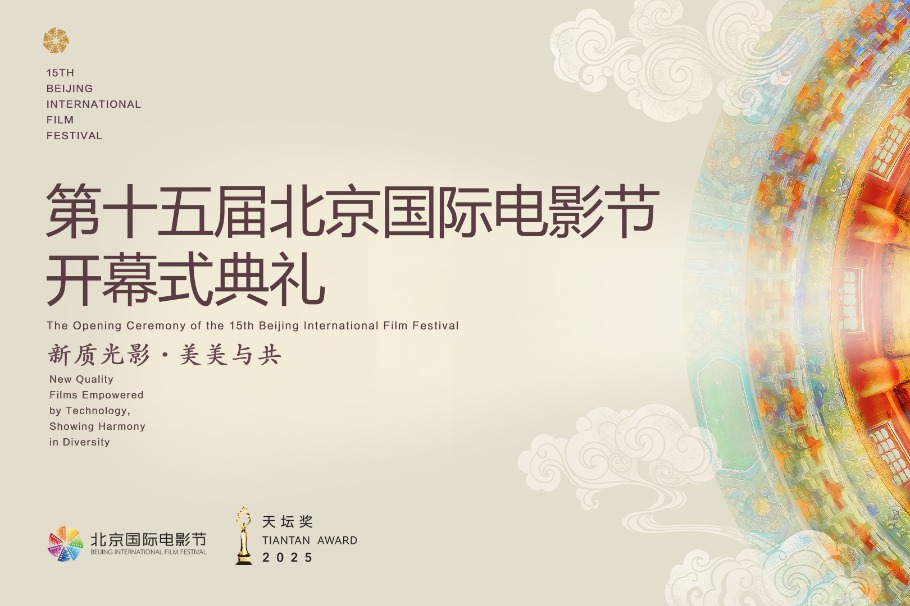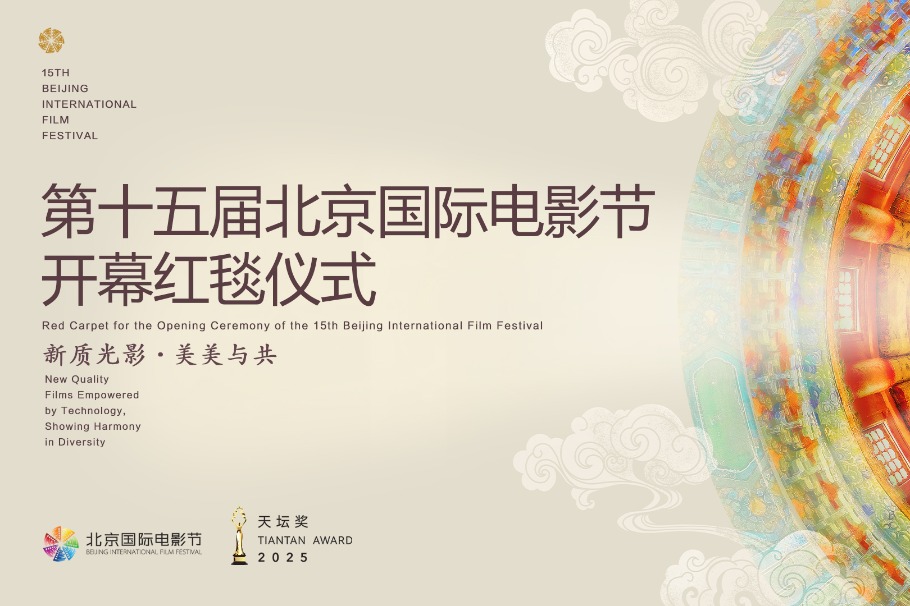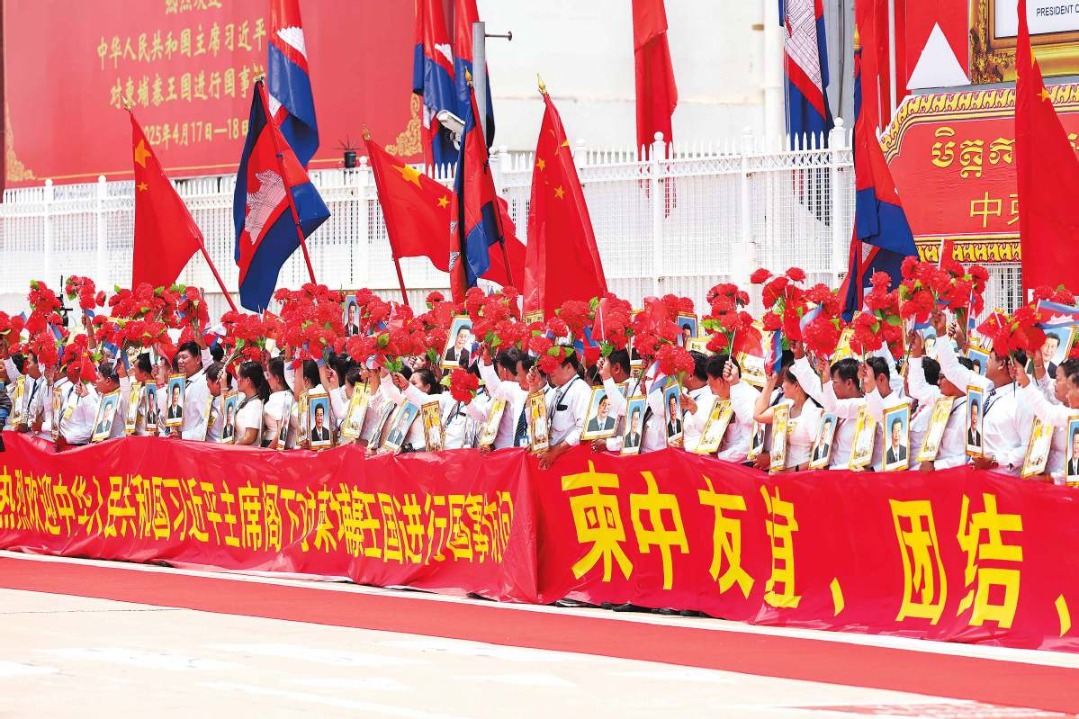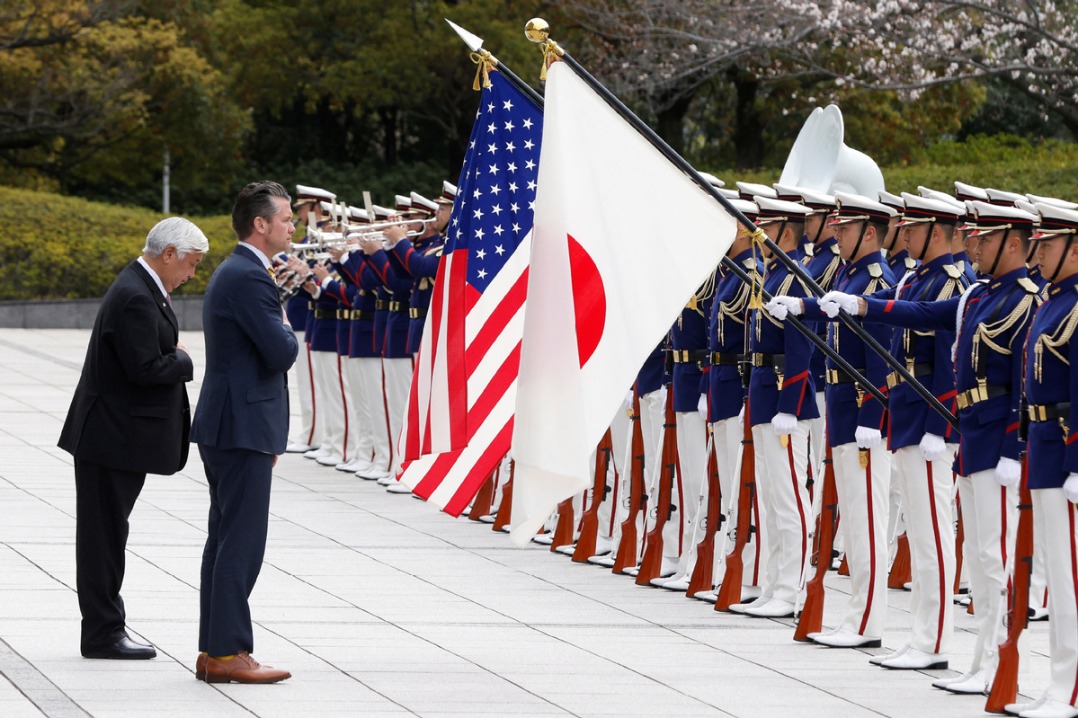Key to open way to community with a shared future
It is the duty of China and ASEAN to ensure the historic principles live on as the foundation for a peaceful, stable and prosperous Asia


This year marks the 70th anniversary of the Bandung Conference. On this occasion, it is significant to reflect on the continuous significance of the Bandung Spirit, particularly its legacy to drive the interests of developing nations in Asia and Africa away from the context of Cold War confrontation toward a new world order.
The Bandung Conference in 1955 was known as promoting the fundamental rights of the nations which resisted colonialization as they decisively demonstrated their strength to resist European domination. Its final resolution culminated in the creation of the Non-Aligned Movement in 1961 by leaders of developing countries who joined hands to avoid being forced to take sides in the Cold War. The initial motivation for the Non-Aligned Movement was the promotion of peace and national development while safeguarding national independence, sovereignty, territorial integrity and internal security.
The core principles of the Bandung Conference centered around political self-determination, mutual respect for sovereignty, non-aggression, non-interference in internal affairs and equality. These issues were of central importance to all leaders attending the conference. At the time most of these nations had newly gained independence from colonial rule.
Therefore, the legacy of the Bandung Spirit should be remembered as the quest of the developing countries in seeking an alternative way for global governance and justice, to achieve greater social and economic development for their people and their nations.
Although the Cold War has ended, the Bandung vitality continues to resonate well in the present day with its fundamental principles progressively inspiring the developing nations in Asia and Africa. These norms continue to shape and guide interaction among the developing countries within the realm of multilateral South-South collaboration.
For instance, the Association of Southeast Asian Nations wholesomely shares the same spirit of the Bandung principles — peaceful conflict resolution, mutual respect for sovereignty, non-interference in internal affairs of other countries, and equality among nations — as the regional grouping strives to safeguard each member state's sovereignty and independence, promote self-reliance and peaceful cooperation to address the current global challenges, and pursue sustainable development and regional integration.
Stimulated by the Bandung legacy, ASEAN has endeavored to promote regional stability to keep Southeast Asia free from conflicts under its trademark framework of ASEAN Regional Forum by pursuing confidence-building, preventive diplomacy and conflict resolution, with key principles including reliance on peaceful methods, non-coercion, settlement of disputes without the use of force and consensus-building. As visibly evident to this endeavor, some ASEAN countries' approach to resolving disputes in the South China Sea, for example, reflects the Bandung principles of peaceful means.
In addition, ASEAN follows keenly the Bandung Spirit of cooperation and mutual benefit as the grouping continues to foster economic and political integration among its member states by adhering to the codification of the norms, rules and values of the legally binding ASEAN Charter to boost community building as well as by abiding with its hallmark Treaty of Amity and Cooperation, which serves as a legally binding code for interstate relations and embodies universal principles of peaceful coexistence and friendly cooperation among states in Southeast Asia and beyond.
There is another important aspect. The enduring political and normative influence of the Bandung Conference has had profound impact on China, which has demonstrated its strong desire for peace and friendship in Asia and Africa. The Bandung Spirit was also known as the emergence of Asia's regional order. China has attached considerable importance to the Bandung Spirit and has profoundly pursued connection with Asian and African countries.
After the Bandung Conference, China has engaged more with African countries. China's relationship with other Asian countries has formed an important foundation for Asian regionalism. In Asia, China assumed greater role in relations to the United Nations-based multilateral diplomacy, and it made more engagement with the East Asia and expanded to all directions, including Central, South and Southeast Asia.
After the end of the Cold War, China deepened its dynamic relationship with ASEAN, adhering to the Bandung Spirit, and from the mid-1990s, China started actively participating in Asian regionalism led by the 10-member grouping.
China remains a champion in carrying the Bandung Spirit forward. During its 60th commemorative summit in Indonesia in 2015, President Xi Jinping acknowledged the significance of endorsing the Bandung Spirit. He called for a sustained commitment to greater openness and closer Asia-Africa, South-South and North-South cooperations toward building a community with a shared future and a new path of peace and development for mankind.
China has been inspired by the Bandung Spirit. China's reform and opening-up process has driven the country's economic prosperity and accelerated regional collaboration for a new type of international relations of win-win cooperation among all countries along the ancient Silk Road, particularly in Asia and Africa.
Next to China is ASEAN. The raison d'être of the regional grouping has been founded on the principles that deeply reflect those of the 1955 Bandung Conference, which advocated self-determination, non-interference and peaceful coexistence, aiming to promote economic and security cooperation among its member states and focusing on regional peace, stability and economic growth.
Although 70 years have passed, the Bandung Spirit remains relevant as ever for all Asian nations eyeing a rightful place in the international system of sovereign states. China and ASEAN members have the duty to keep the Bandung legacy alive for the sake of their future outlook for a peaceful, stable and prosperous Asia.
Both sides must work relentlessly together and with fortitude to overcome the challenges they face in upholding the Bandung Spirit, including reining in forces that can cause regional internal divisions, withstanding regional pressures that can alter the Asian regional order and values, and adapting to changing geopolitical uncertainties and global dynamics to actively influence common development toward a win-win future outlook of the whole of Asia region and beyond.

The author is former minister of industry, mines and energy of Cambodia and a retired academic and distinguished senior advisor to the Cambodian Center for Regional Studies. The author contributed this article to China Watch, a think tank powered by China Daily. The views do not necessarily reflect those of China Daily. The views do not necessarily reflect those of China Daily. The views do not necessarily reflect those of China Daily.
Contact the editor at editor@chinawatch.cn.































